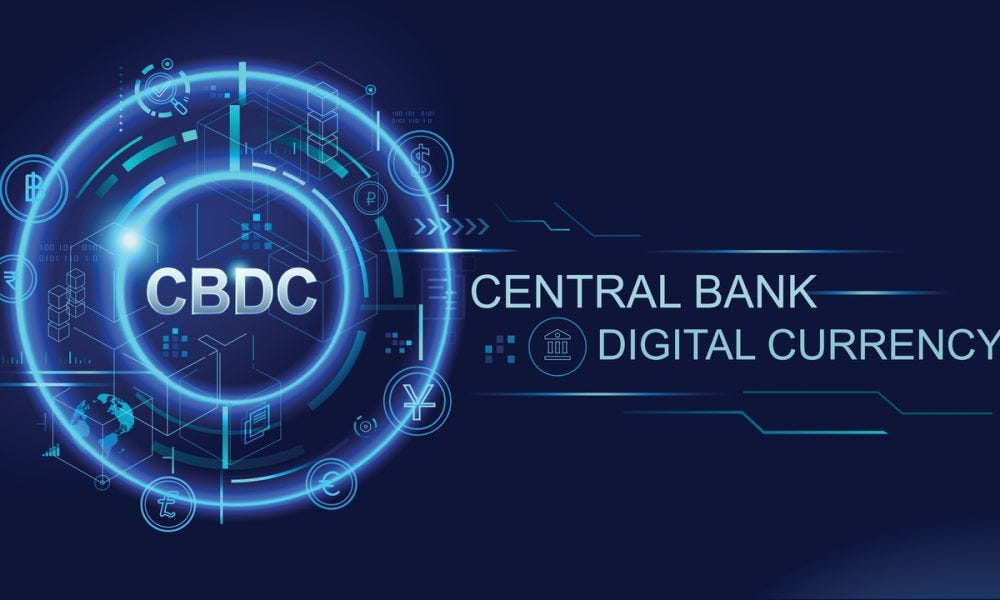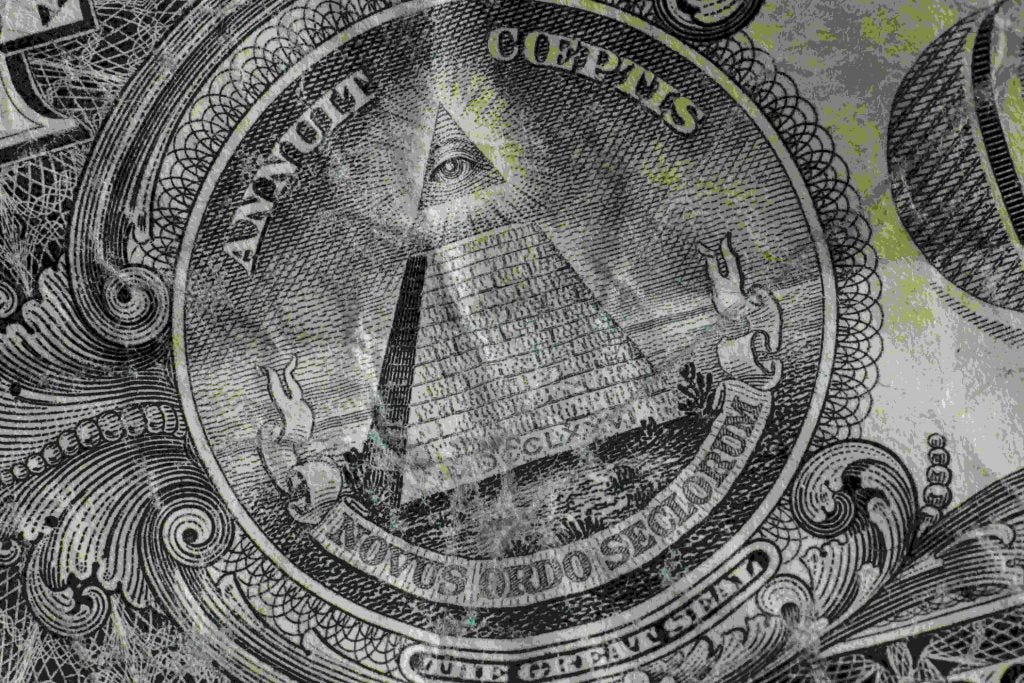Agustin Carstens is (Partially) Right!
by James Corbett
corbettreport.com
February 20, 2022
Things get pretty weird pretty quick when the banksters start talking about the nature of money.
For example, take a look at this passage from "The Socio-Political Dimensions of the Currency: Implications for the Transition to the Euro," a research paper by French economist Bruno Théret published in the Journal of Consumer Policy in 1999. Given its title, its provenance and its publication context, you would be forgiven for assuming this is just another eye-wateringly boring exercise in abstract philosophical onanism. But you would be wrong.
At the origin of money we have a “relation of representation” of death as an invisible world, before and beyond life – a representation that is the product of the symbolic function proper to the human species and which envisages birth as an original debt incurred by all men, a debt owing to the cosmic powers from which humanity emerged (Malamoud, 1988; Rospabé, 1995; Thiveaud, 1995). Payment of this debt, which can however never be settled on earth—because its full reimbursement is out of reach—takes the form of sacrifices which, by replenishing the credit of the living, make it possible to prolong life and even in certain cases to achieve eternity by joining the Gods.
I'm not sure what you were expecting from a stuffy economics paper, but it probably wasn't that. But then, this isn't an economics paper. It's a paper on the nature of the monetary system itself, which, you will concede, is a different beast entirely.
Indeed, if you follow my work, you'll know that the question of monetary reform isn't just some silly ivory tower distraction; it is the core issue that lies at the bottom of the conspiracy reality rabbit hole.
As I argued in Century of Enslavement: The History of the Federal Reserve, the history of the United States (but not only the United States) takes on an entirely different character when we see it as the consequence of a secret war taking place over control of the nation's currency. And, as you will also know from that documentary, the monetary war in the United States was decided in favour of the banking oligarchy in 1913 with the creation of the Federal Reserve.
But the story of that war is not over yet. The nature of money is being called into question yet again. This time, the argument is not about the creation of a new regional currency (the euro), which was the subject of Théret's thesis. No, this time the bankers are trying to create an entirely new form of money, one that will serve as the capstone on their pyramid of power and complete their takeover of the financial system of the world.
It is in this context that the banksters are once again waxing philosophical about the nature and the meaning of money.
Case in point: Agustin Carstens—the morbidly obese head of the banksters' key body, the Bank for International Settlements—recently gave a speech on "Digital currencies and the soul of money" at a conference on central bank digital currencies hosted by Goethe University's Institute for Law and Finance (ILF).
And—just like The Great Narrative of the World Economic Forum is worth parsing for its insight into the world that Klaus Schwab and his cronies are preparing to bring about—this speech, too, is worth parsing for what it can tell us about the coming monetary enslavement grid being prepared by Carstens and his cronies.
What are CBDCs?
First, the context: As I sincerely hope you know by now, the banking world is ablaze with talk of "central bank digital currencies," or CBDCs. A CBDC is—as the name would suggest—a digital token issued by a central bank as an expression of central bank liability.
While that might not mean much to your average Joe Sixpack or Jane Soccermom, it means a hell of a lot to the banksters. To employ a cultural reference, CBDCs threaten to "cross the streams" between the retail and wholesale banking circuits, and they even give central banks the power to directly control the use of those tokens at the individual consumer level.
That idea should send shivers down your spine. But, unfortunately, the reality of what is happening is obscured behind a veil of banking jargon that leaves most people bored and puzzled in equal measure. Happily, Agustin Carstens himself explained precisely what this means in plain English during an IMF livestream in 2020 that (I'm pleased to note) has been making the rounds online of late:
We don’t know who’s using a $100 bill today and we don’t know who’s using a 1,000 peso bill today. The key difference with the CBDC is the central bank will have absolute control on the rules and regulations that will determine the use of that expression of central bank liability, and also we will have the technology to enforce that.
I sincerely hope you explore my previous work on CBDCs to familiarize yourself with the concept. Suffice it to say, CBDCs represent an entirely new form of money—programmable digital money directly issued and controlled by the central bank—that is part and parcel of the coming biosecurity/vaccine passport/social credit enslavement grid. We do not have to look beyond the latest headlines coming out of Canada to understand what the ramifications of this coming move mean for the future of free humanity.
What is the soul of money?
So, with that context under our belt, we can turn to Agustin Carstens' recent speech. Still giddy about the prospects of this programmable central bank money, Carstens used his speech to sing the praises of central bank digital currencies and warn of the "dangers" of potential threats to central bank hegemony over the coming digital monetary order.
First, to establish the theme of the talk, Carstens takes a page from Goethe—the namesake of the university hosting the conference where he is speaking—by posing the "Gretchenfrage" of central banking, which he formulates thusly: "what is the soul of money?"
He then supplies his own answer to that question:
My main message today is simple: the soul of money belongs neither to a big tech [sic] nor to an anonymous ledger. The soul of money is trust. So the question becomes: which institution is best placed to generate trust? I will argue that central banks have been and continue to be the institutions best placed to provide trust in the digital age. This is also the best way to ensure an efficient and inclusive financial system to the benefit of all.
The argument that follows is exactly what you would expect from the poster boy of the fat cat bankster class (emphasis on fat). Broadly, that argument is:
Trust in the currency holds the monetary system together;
trust requires sound institutions that can stand the test of time;
central banks are precisely the types of "sound" institutions that have proven themselves "trustworthy" over centuries of history;
ergo, "the vision of an open and global monetary and financial system that harnesses technology for the benefit of all" that Carstens espouses (and which we plebs would want, too, if we knew what was good for us) is one that features central bank-controlled CBDCs at its core.
No surprises there, right? In fact, it's so obvious (from the viewpoint of a central bank kingpin like Carstens, that is) that the monetary system should feature central banks at their core, one wonders why Carstens would even bother to make a speech like this at all.
Well, when you read the speech for yourself (which, as always, I encourage you to do), you'll see that Carstens' musings are motivated by what he sees as the growing threat of potential rivals to central bank hegemony over the monetary system. Specifically, he names "Big Tech stablecoins"—cryptocurrencies that base their value on collateral, usually fiat currency like the US dollar—and "decentralized finance"—peer-to-peer cryptocurrencies and the financial innovations based on them—as competitors that could one day supplant central banks as the core of the monetary system.
Luckily for Carstens' argument, any attempt to eliminate central banks from the monetary system will (he asserts) lead to certain disaster, leaving the public clamouring for "a trusted and experienced party" who can "tame the unleashed spirits and restore order." And who better to bring order from that chaos than the banksters and their benevolent central banks? Q.E.D.
Where do we go from here?
As I say, Carstens' speech is exactly what you would expect from the head of the globalists' premier central banking institution. But there is one thing that might be surprising about all of this: he's not wrong. To be more precise, he is utterly, stupendously wrong about almost everything, but he's not wrong about one key assertion: the soul of money is indeed trust.
There's a lot to be said here, and, trust me (ha ha ha), I will be saying a lot more about this topic in the near future. For now, though, it's important to understand that money is a social construct. That is why would-be rulers are so interested in establishing elaborate fairy tales about the "primordial debt" that we owe "to the cosmic powers from which humanity emerged" and how this debt must be repaid by sacrifice. By constructing such elaborate myths, the banksters can then assume the role of the godhead, collecting our sacrificial offerings and preaching to us (as Carstens does) about how only they can keep us safe from the forces of chaos that threaten to destroy civilization.
The business of upending the monetary order, then, is not child's play. We are not talking about some trifling detail, such as what monetary instrument you use to pay for a stick of gum at the convenience store. Rather, we are talking about the foundation of society itself: the need for trust and stability. That is why Carstens is not wrong to identify trust as the soul of money, nor is he wrong to warn that a too-hasty rush into a new monetary paradigm could lead to financial disaster, social chaos and geopolitial instability.
But he is most assuredly wrong—as readers of this column will no doubt know—to state that central banks are the trusted institutions that we need to steward over this Great Transition being made into the digital monetary paradigm. On the contrary. If central banks are allowed to steward over this system, human society will be placed completely and irreversibly under the thumb of the ruling bankster oligarchy. The stakes could not be higher.
As I mentioned, I will have a lot more to say on this, the most pressing topic of our times, in the near future. In the meantime, I sincerely hope you will brush up on your monetary history as free humanity prepares to create a new monetary system . . . or be forever enslaved by the banksters.
This weekly editorial is part of The Corbett Report Subscriber newsletter.
To support The Corbett Report and to access the full newsletter, please sign up to become a member of the website.







